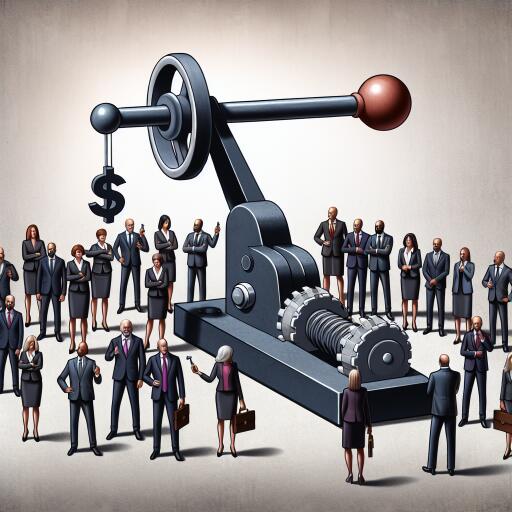Ken Morris: Politicians only think they can control prices
As election season draws near, the discussion around financial issues increasingly intertwines with political narratives. However, it’s essential not to be misled. The backbone of our nation’s financial health stems from the rigorous workings of free markets and the spirit of competition. It’s true that elected officials wield considerable power over markets and the economy through legislative and regulatory means, but their control has its limits. The real drivers of economic dynamics are the markets themselves, propelled by consumer behaviors.
Take the example of gasoline prices, which are influenced by a multitude of factors, yet supply and demand remain the primary determinants. A notable governmental intervention occurred when the U.S. decided to release some of its emergency strategic reserves into the market, which had an impact on prices. Additionally, taxes also contribute significantly to the final cost per gallon.
The soaring cost of groceries offers another vantage point. There’s a common joke about how carrying $100 worth of groceries seems to require less effort these days. Behind this humor lies the stark reality of how complex the journey is for goods from farms to shelves, with prices reflecting a long chain of production and logistics processes.
When it comes to specific examples such as the recent spike in orange juice prices, it’s not a simple matter of grocery stores or manufacturers hiking up prices for more profit. The primary culprit was a poor harvest in Brazil, a country that produces a significant portion of the world’s oranges. Such fluctuations highlight the intricate balance of global supply and demand affecting market prices.
As the political commercials start flooding in, especially in swing states, we’ll be bombarded with promises and plans that candidates claim will benefit our financial well-being. Yet, conspicuously absent will be disclaimers or discussions on the potential economic trade-offs, such as increased national debt or raised taxes.
In the lead-up to November, the blend of politics and economics will become increasingly prominent. While politicians can set the stage through economic policies, many variables influencing consumer prices remain outside their direct control. Poor crop yields, droughts affecting livestock, and even diseases impacting poultry supply are just a few examples of the diverse factors at play.
Moreover, labor costs, which have surged post-Covid, represent another area outside political control. No matter the election outcome, the reality remains that prices for goods and services will continue to fluctuate based on broader economic trends and market dynamics.
Understanding this complexity is crucial for consumers as they navigate the promises and policies touted by politicians. Regardless of who occupies the corridors of power, our daily responsibilities—to work, pay bills, and maintain our households—remain unchanged. The lesson here is that while policies can guide, the market’s inherent unpredictability always plays a defining role in our economic landscape.
